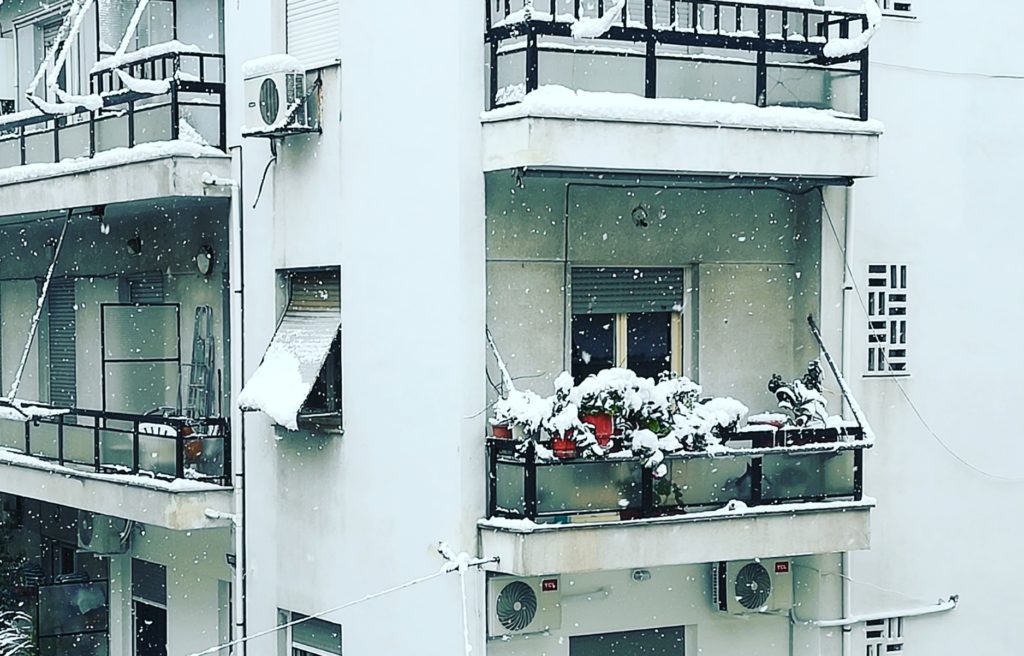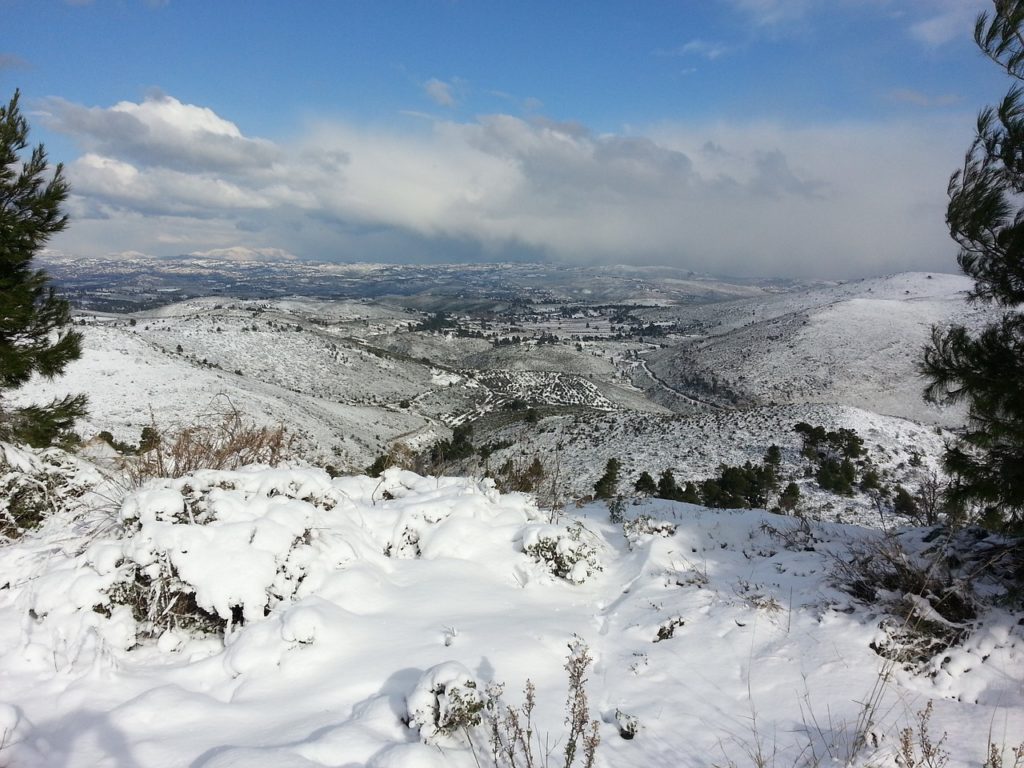Untranslated colloquialisms in Greek Posted by Ourania on Feb 16, 2021 in Vocabulary
Σήμερα χιονίζει στην Ελλάδα! Today it snows in Greece and this is big news, especially for us who live in Athens!
The topic of this article is about snow. We will see the meaning of untranslated colloquialisms with examples related to snow.
#1. Δηλαδή: we use it to mean such as or what do you mean.
Α: Σήμερα κάνει πολύ κρύο στην Αθήνα. Today it is very cold in Athens.
Β: Αλήθεια; Δηλαδή πόσους βαθμούς έχει; Really? How many degrees (that is)?
#2. Και καλά / τάχα μου: we use these expressions when things are not as they seem or when someone is lying.
Α: Ο Γιάννης μάς είπε ότι και καλά / τάχα μου θα πήγαινε για σκι το Σαββατοκύριακο αλλά έκανε πάρτι στο σπίτι του. / Yannis lied to us that he would go skiing on the weekend but he had a party at home.
Β: Κι εσύ πού το ξέρεις; / How do you know?
Α: Μου το είπε η Σοφία που την είχε καλέσει. / Sophia told me so, she was invited.
#3.Πάλι καλά: it could be used to mean how nice.
A: Παιδιά, αύριο το σχολείο σας είναι κλειστό, λόγω χιονιού. / Children, tomorrow your school will be closed because of the snow.
Β και Γ: Πάλι καλά! Δε χρειάζεται να διαβάσουμε. / Great! We don’t need to do our homework .
#4. δήθεν: we use it to describe someone who is arrogant and pretentious. Δήθεν means supposed or fake.
Δε μου αρέσει καθόλου ο Μάρκος. Είναι πολύ δήθεν. Όλο λέει ότι πηγαίνει για σκι μόνο στην Ελβετία.
I don’t like Marco at all. He’s very arrogant. He keeps saying that he goes skiing in Switzerland only.
#5. Ούτε που: it is used in negative sentences to make them more emphatic
Χιονίζει όλη μέρα αλλά η Μαρία δεν άνοιξε τα πατζούρια και ούτε που το κατάλαβε. / Maria hasn’t realized it has been snowing all day because she didn’t open the shutters.
#6. Με το ζόρι: by force. Ζόρι means pressure or stress.
Α: Πάμε να φτιάξουμε χιονάνθρωπο! / Let’s go make a snowman!
Β: Σου είπα εκατό φορές ότι κρυώνω. Με το ζόρι να βγω έξω; / I told you a million times that I’m cold. You can’t force me to go out.
#7. Κάθε άλλο: not at all. We use it to show that we disagree with what someone said.
Α: Γιατί δεν βγήκες έξω να παίξεις με το χιόνι; Δε σου αρέσει; / Why didn’t you go out to play with the snow? Don’t you like it?
Β: Κάθε άλλο! Απλώς είμαι κουρασμένη. / Of course I do! I’m just tired.
#8. Λες και: as if
Η γάτα μας παίζει με τις χιονονιφάδες λες και είναι μπαλάκια από αλουμινόχαρτο. / Our cat is playing with the snowflakes as if they are aluminum foil balls.

Build vocabulary, practice pronunciation, and more with Transparent Language Online. Available anytime, anywhere, on any device.






Comments:
Christophe:
Hi Ourania! Thanks a lot for the lessons – they are extremely useful for me. Just a small favor on my side: Maybe can you give more than 1 example for the colloquialisms so to understand the phrases better? Much appreciated. Enjoy the snow! 🙂
Ourania:
@Christophe Γεια σου!
Thank you for your useful comment! I cannot change the post now but from now on I will be giving more than one examples.
Το χιόνι ήταν πολύ ωραίο 🙂
Alexandra:
Χαίρομαι που ήσουνα χαρούμενη.
Πάρα πολύ ωραίο post! 🙂
Ourania:
@Alexandra Ευχαριστώ, Αλέξάνδρα!
Samet:
Geia Ourania! We have exactly the same phrase in Turkish. “Metazori” and it means “by force” like forcing someone to do something. It also means “problem” in another context like “Do you have a zor with me?” I wonder if a similar usage exists in Greek.. Thanks 🙂
Ourania:
@Samet Yes, it does! It is slang though.
I was thinking to write a post about the most common Greek words with Turkish origins.